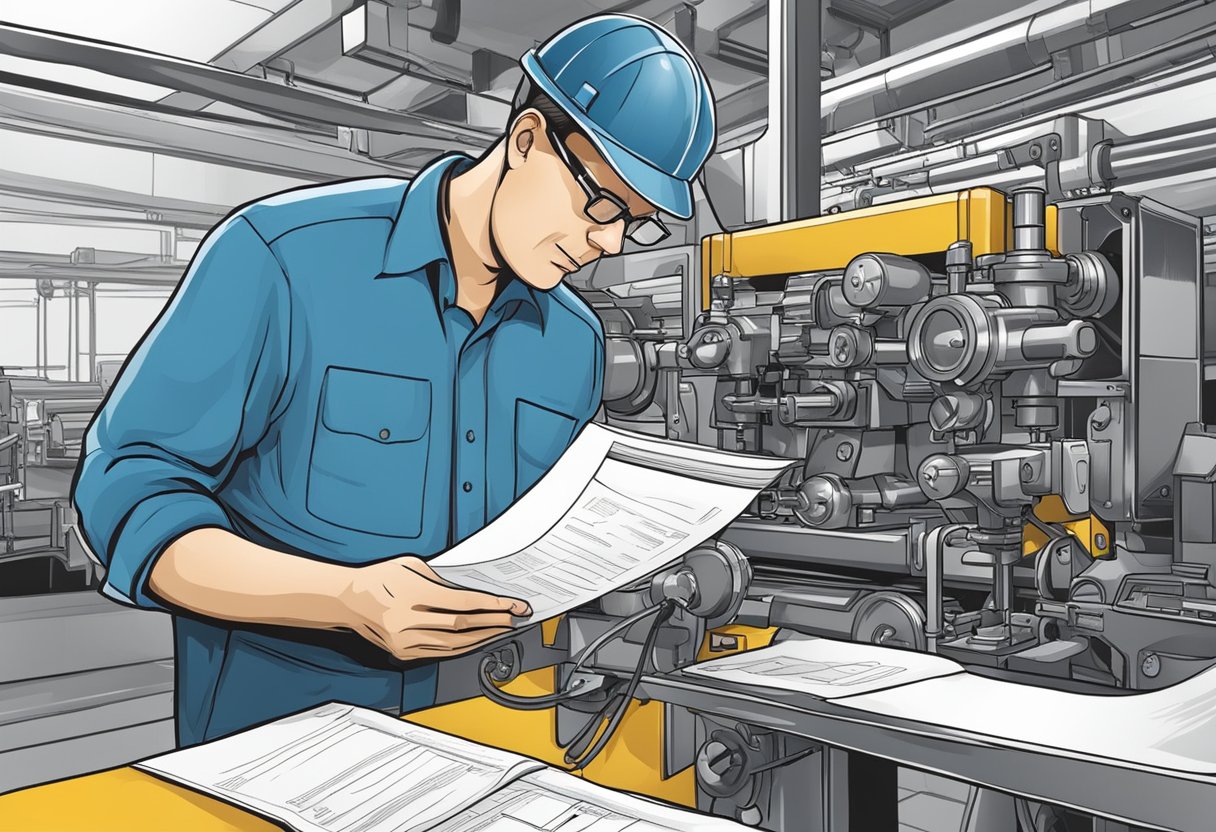Understanding Equipment Appraisers
Equipment appraisers are professionals who provide a systematic evaluation of the value and condition of equipment. They are trained to identify the purpose of the appraisal, whether it is for financial reporting, insurance, taxation, litigation, or any other purpose. In the United States, professional appraisal practice is governed by the Uniform Standards of Professional Appraisal Practice (USPAP), which is recognized as the leading authority on the subject.
To become an accredited equipment appraiser, one must obtain certification from a recognized professional organization such as the American Society of Appraisers (ASA) or the Association of Machinery and Equipment Appraisers (AMEA). These organizations offer training and certification programs that cover a wide range of topics related to equipment appraisal.
The U.S. Small Business Administration (SBA) recommends that businesses seeking financing should have their equipment appraised by a certified equipment appraiser. This is because an accurate equipment appraisal can help businesses determine the true value of their assets and provide lenders with a clear picture of the borrower’s financial position.
Accredited equipment appraisers are trained to provide unbiased and objective opinions of value. They use a variety of methods to determine the value of equipment, including market data analysis, cost analysis, and income analysis. They also take into consideration factors such as depreciation, obsolescence, and physical condition.
In conclusion, understanding equipment appraisers is important for businesses seeking financing or looking to determine the value of their assets. Accredited equipment appraisers provide unbiased and objective opinions of value based on their training, experience, and knowledge of the industry.
The Appraisal Process
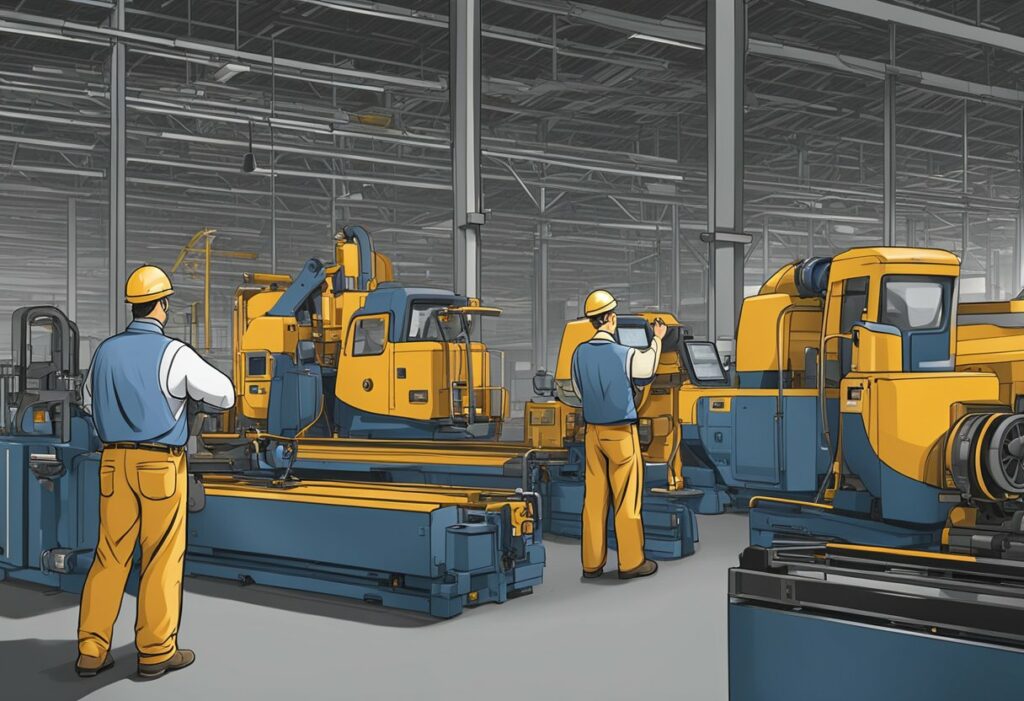
The equipment appraisal process is a systematic evaluation of the value and condition of equipment. The process typically follows several key steps to ensure accuracy and reliability. The first step in the process is selecting an appraiser. Choosing who does the appraisal can be a difficult decision. Experience is one of the most important things an appraiser can bring to the table.
The appraiser then identifies the purpose of the appraisal, whether it’s for financial reporting, insurance, taxation, or litigation. This is important because it will determine the type of value that is being sought. The appraiser will then determine the scope of the appraisal and the specific equipment that will be appraised.
During the inspection phase, the appraiser will collect any and all applicable data regarding the equipment in question. This would include personally inspecting the machinery, determining its condition (including its maintenance history and expected lifespan), and surveying the wider market for similar equipment. The appraiser will also consider the equipment’s location, age, and any relevant market trends.
Once the appraiser has collected all the necessary data, they will perform a valuation. Machinery and equipment appraisers use the Direct Market Comparison (or Sales Comparison) approach to indicate value by analyzing recent sales (or offering) prices of assets that are comparable to the assets that are the subject of the appraisal. The appraiser will also consider the cost approach, which is based on the cost to replace the asset with a new one of similar kind and quality.
Finally, the appraiser will prepare a written report that outlines the scope of the appraisal, the methods used to determine value, and the final conclusion of value. The report will also include any assumptions, limiting conditions, and qualifications that the appraiser may have. The report must comply with the Uniform Standards of Professional Appraisal Practice (USPAP), which is a set of guidelines that govern the appraisal profession.
In conclusion, the equipment appraisal process is a critical step in determining the value of equipment. It involves a thorough inspection, data collection, and analysis to ensure that the final conclusion of value is accurate and reliable. It is important to choose an experienced appraiser who understands the equipment and the purpose of the appraisal, and who follows the USPAP guidelines.
Types of Equipment Appraisals
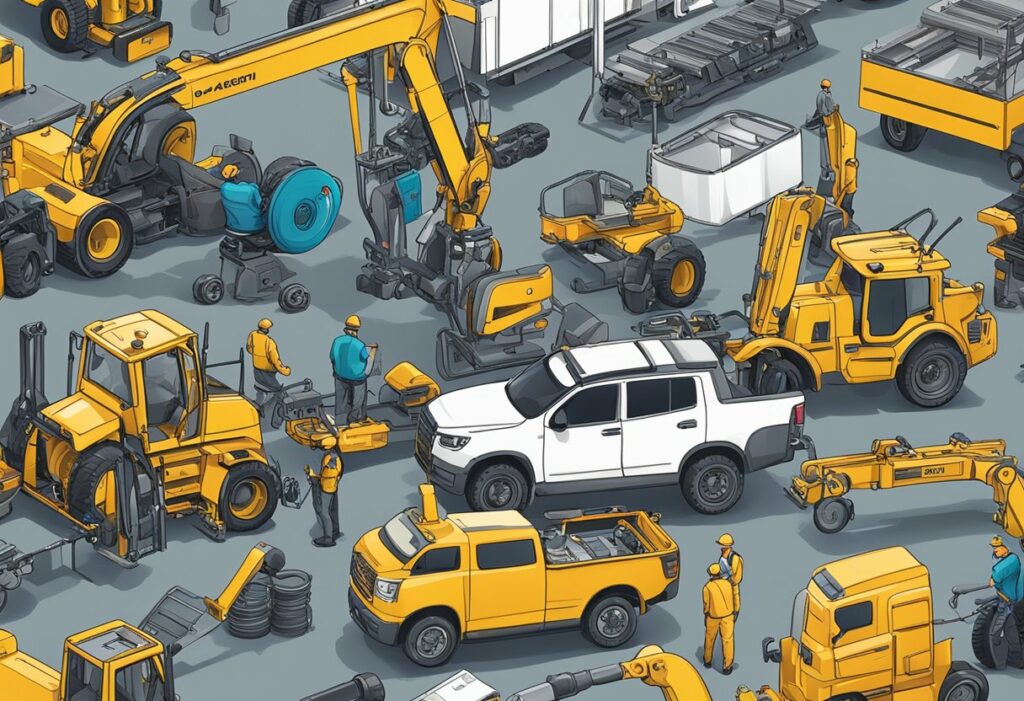
Equipment appraisers provide different types of appraisals to meet the specific needs of their clients. The type of appraisal chosen depends on the purpose of the appraisal, the type of equipment, and the level of detail required. Here are the most common types of equipment appraisals:
Inspected Appraisal Reports
Inspected appraisal reports are the most comprehensive type of appraisal report. They provide a detailed description of the equipment, including its condition, specifications, and history. Inspected appraisal reports are usually required for business valuations, financing, insurance, and legal purposes.
Inspected appraisal reports can be further divided into three categories:
- Fair Market Value (FMV): The price at which the equipment would change hands between a willing buyer and a willing seller, neither being under any compulsion to buy or sell, and both having reasonable knowledge of the relevant facts.
- Orderly Liquidation Value (OLV): The estimated price that could be realized for the equipment in an orderly liquidation over a reasonable period of time.
- Forced Liquidation Value (FLV): The estimated price that could be realized for the equipment in a forced liquidation sale, such as an auction.
Desktop (Uninspected) Appraisal Reports
Desktop appraisal reports are less comprehensive than inspected appraisal reports. They are based on information provided by the client and do not involve a physical inspection of the equipment. Desktop appraisal reports are usually used for equipment that is easily identifiable and verified, in transit, or at multiple locations.
Desktop appraisal reports can also be further divided into FMV, OLV, and FLV categories.
Overall, equipment appraisers provide different types of appraisals to meet the specific needs of their clients. Inspected appraisal reports are the most comprehensive type of appraisal report, while desktop appraisal reports are less comprehensive but still useful in certain situations. The type of appraisal chosen depends on the purpose of the appraisal, the type of equipment, and the level of detail required.
Role of Equipment Appraisers in Industries
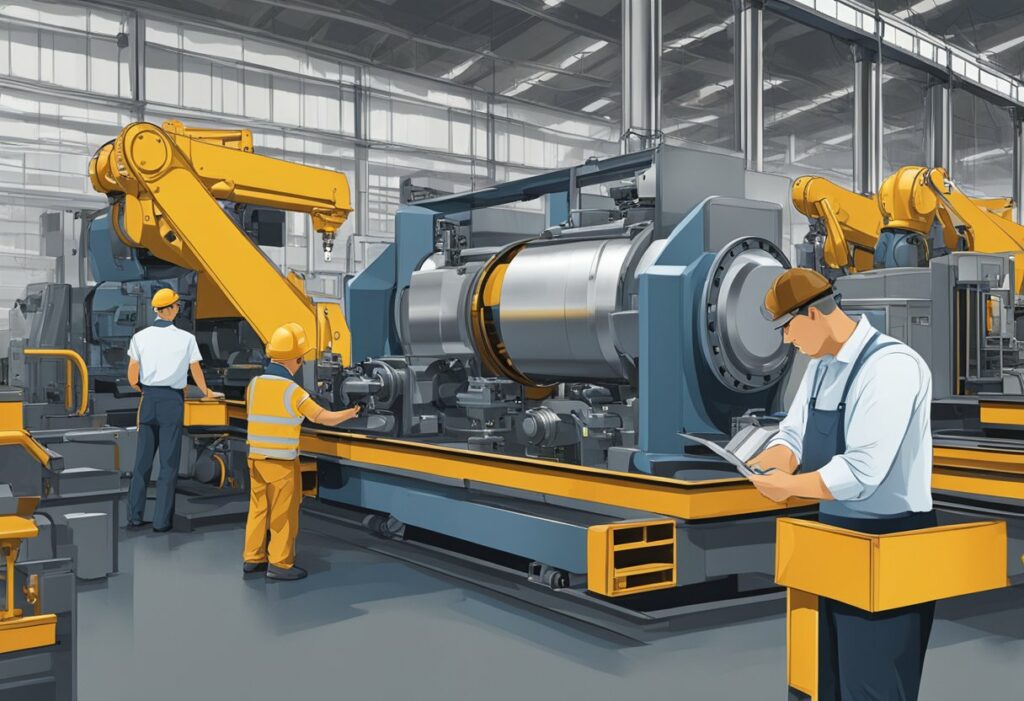
Equipment appraisers play a crucial role in various industries, providing valuable insights into the value and condition of machinery, tools, and other assets. Whether it is construction, plastic, chemical, woodworking, printing, rubber, material handling, mining, food, agriculture, asphalt, rigging, gas, or plastics, understanding the value of machinery and equipment is essential for making informed business decisions.
Equipment appraisers possess specialized knowledge and expertise in assessing the worth of machinery and equipment. They use various methods to determine the value of the equipment, including the cost approach, the sales comparison approach, and the income approach. The cost approach considers the cost of the equipment if it were to be replaced with a similar item. The sales comparison approach compares the value of the equipment to similar items that have recently sold. The income approach considers the revenue that the equipment can generate over its expected lifespan.
The role of equipment appraisers is critical in industries where machinery and equipment play a significant role in the business’s operations. For example, in the oil and gas industry, equipment appraisals play an essential role in determining the value of drilling rigs, compressors, and other equipment. The appraisals help business owners make informed decisions about buying, selling, or insuring equipment.
Related Posts:
Professional Standards and Accreditations

Equipment appraisers are professionals who provide unbiased and defensible opinions of value for machinery and equipment. In order to ensure that appraisals are accurate and reliable, professional standards and accreditations have been established.
One of the most important accreditations for equipment appraisers is the Uniform Standards of Professional Appraisal Practice (USPAP). This set of standards is recognized as the industry standard for appraisals and requires appraisers to adhere to a strict code of ethics and professional practice. USPAP-compliant appraisals are considered to be more reliable and defensible in legal proceedings.
Another important accreditation for equipment appraisers is certification from a professional association such as the Association of Machinery and Equipment Appraisers (AMEA). AMEA-certified appraisers must follow a code of ethics and adhere to standards of professional practice. This certification ensures that the appraiser has the necessary knowledge and experience to provide accurate appraisals.
Professional standards and ethics are also important for equipment appraisers. All AMEA members must follow and adhere to the Code of Ethics and AMEA Standards and Procedures of Professional Appraisal Ethics and Practice. This code of ethics contains principles that govern each individual appraiser’s conduct and practice.
In summary, equipment appraisers must adhere to strict professional standards and accreditations in order to provide accurate and unbiased opinions of value for machinery and equipment. USPAP-compliant appraisals and certification from professional associations such as AMEA are important indicators of an appraiser’s competence and reliability.
Equipment Appraisers and Financial Services
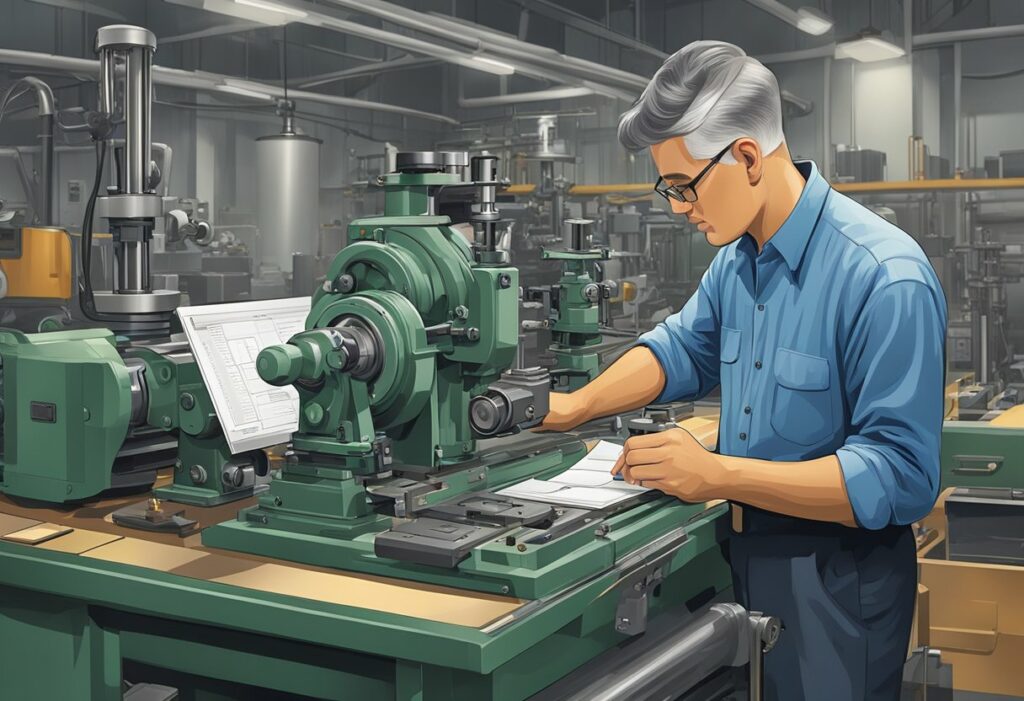
Equipment appraisals are an essential part of various financial services, including financing, insurance, financial reporting, estate planning, and banking. Equipment appraisers provide a neutral and knowledgeable opinion on the value of equipment, which is necessary for making informed financial decisions.
Financing
Equipment appraisals are required when obtaining financing for equipment purchases. Lenders need to know the value of the equipment that they are financing to ensure that it is sufficient collateral for the loan. Equipment appraisers provide an unbiased and professional opinion on the value of the equipment, which helps lenders make informed decisions.
Insurance
Equipment appraisals are also necessary for obtaining insurance coverage for equipment. Insurance companies need to know the value of the equipment to determine the appropriate coverage and premiums. Equipment appraisers provide an accurate and reliable assessment of the equipment’s value, which helps insurance companies provide the right coverage.
Financial Reporting
Equipment appraisals are used in financial reporting to determine the value of assets and liabilities. Accurate and reliable equipment appraisals help companies report their financial position accurately and comply with accounting standards.
Estate Planning
Equipment appraisals are also necessary for estate planning purposes. When creating a will or trust, it is essential to know the value of the assets to distribute them fairly. Equipment appraisers provide a professional and unbiased opinion on the value of the equipment, which helps with estate planning.
Banks
Equipment appraisals are also used by banks when providing loans to businesses. Banks need to know the value of the equipment to determine the loan amount and collateral. Equipment appraisers provide an objective and reliable opinion on the value of the equipment, which helps banks make informed decisions.
Legal Implications of Equipment Appraisals
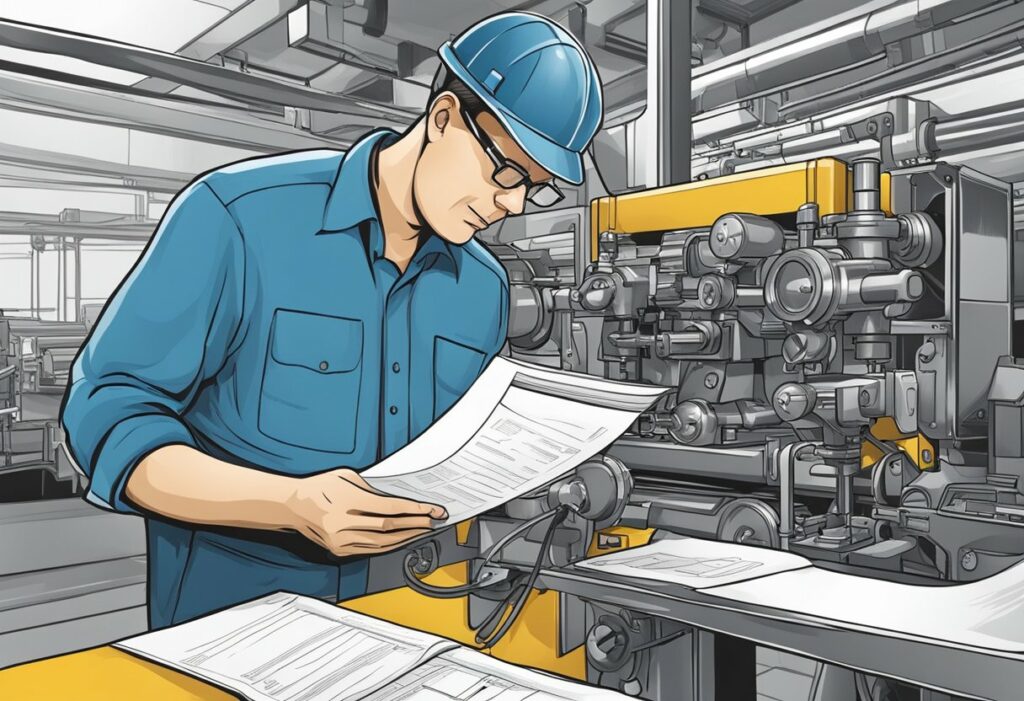
Equipment appraisals have legal implications that must be taken into account. In many cases, an equipment appraisal is required for legal purposes such as litigation, insurance claims, tax purposes, and bankruptcy. In these situations, the appraiser must provide an accurate and unbiased valuation of the equipment in question.
One of the most important legal implications of equipment appraisals is in litigation cases. In litigation, an independent equipment appraiser may be called upon to provide expert testimony regarding the value of the equipment in question. The appraiser must be able to provide a clear and concise explanation of the factors that were taken into account when determining the value of the equipment. This may include factors such as the condition of the equipment, the age of the equipment, and the market demand for similar equipment.
Another legal implication of equipment appraisals is in the context of a proposal. If a company is proposing to purchase or sell equipment, they may require an equipment appraisal to determine the fair market value of the equipment. The appraiser must be able to provide an accurate valuation that takes into account all relevant factors such as the age, condition, and demand for the equipment.
In addition to litigation and proposals, equipment appraisals may also be required for insurance claims. In the event of a loss, an insurance company may require an equipment appraisal to determine the value of the equipment that was lost. The appraiser must be able to provide an accurate valuation that takes into account the condition of the equipment at the time of the loss.
Finally, equipment appraisals may be required in the context of bankruptcy proceedings. In these situations, an equipment appraiser may be called upon to provide a valuation of the equipment that is being sold as part of the bankruptcy proceedings. The appraiser must be able to provide an accurate and unbiased valuation that takes into account all relevant factors.
Overall, equipment appraisals have important legal implications that must be taken into account. Whether it is in the context of litigation, proposals, insurance claims, or bankruptcy proceedings, the appraiser must provide an accurate and unbiased valuation of the equipment in question.
Equipment Appraisal in Different Locations
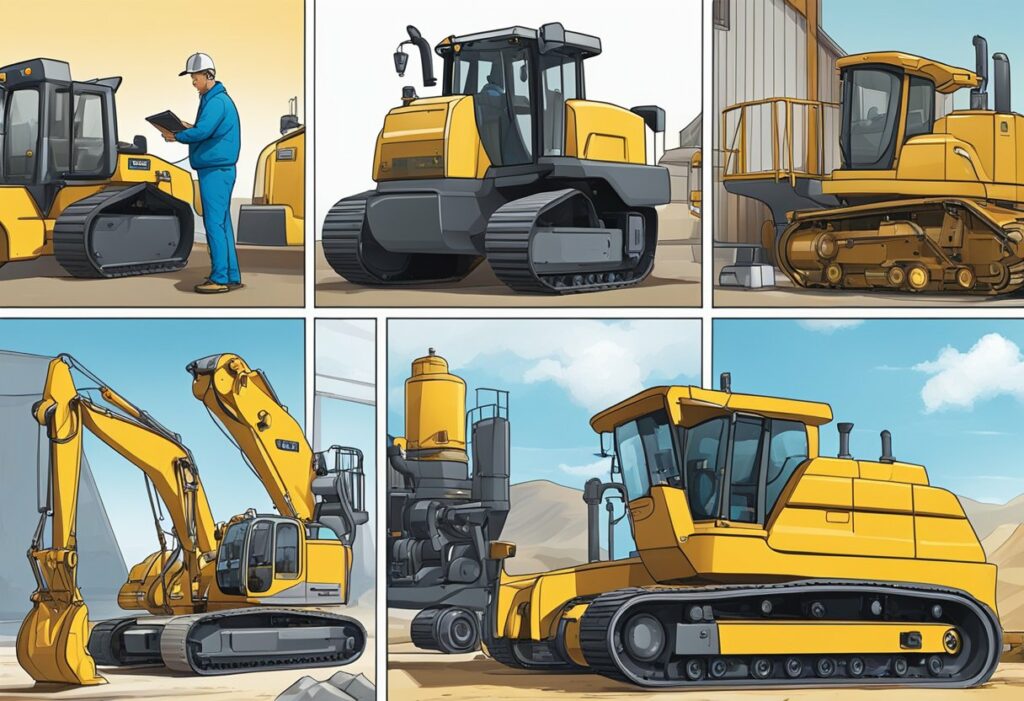
Equipment appraisal is a crucial process that helps businesses determine the value of their machinery and equipment assets. The value of the equipment can vary depending on the location of the business. An equipment appraiser takes into account various factors like the equipment’s condition, age, and market demand to determine its value.
In the Northeast, including states like Pennsylvania, New England, Connecticut, Delaware, District of Columbia, Maine, Maryland, Massachusetts, New Hampshire, New Jersey, New York, Rhode Island, Vermont, and Virginia, businesses can find experienced equipment appraisers who provide accurate valuations. These appraisers are knowledgeable about the local market and can provide insights into the equipment’s value in the area.
On the West Coast, including states like Alaska, California, Hawaii, Idaho, Montana, Nevada, Oregon, Utah, Washington, and Wyoming, businesses can also find reliable equipment appraisers. These appraisers can provide valuations for a wide range of equipment, including manufacturing, heavy construction, medical, and transportation equipment. They are knowledgeable about the local market and can provide accurate valuations based on the equipment’s condition and demand in the area.
In Southern California, businesses can find equipment appraisers who specialize in valuing machinery and equipment assets for various industries. These appraisers are experienced in valuing equipment for businesses in the area and can provide accurate valuations based on the equipment’s age, condition, and market demand.
Overall, businesses can find experienced and knowledgeable equipment appraisers in various locations across the United States. These appraisers can provide accurate valuations based on the equipment’s condition and market demand in the area. It is crucial for businesses to hire a certified and experienced equipment appraiser to ensure that they receive an accurate valuation of their machinery and equipment assets.
Importance of Equipment Appraisal Services
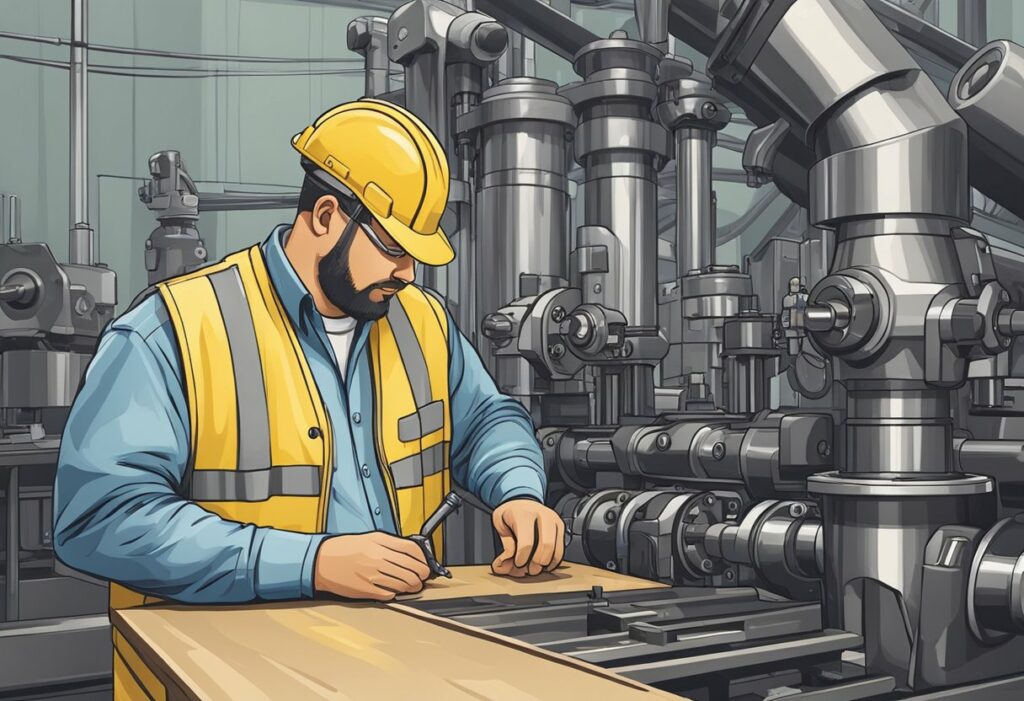
Equipment appraisal services are an essential part of any business that involves machinery and equipment. These services provide a professional valuation of equipment and machinery, which is crucial for a variety of purposes, including allocation of purchase price, insurance coverage, financing, taxation, and litigation support.
The mission of equipment appraisal services is to provide accurate and unbiased valuations of equipment and machinery. They have the resources and expertise to provide a comprehensive appraisal report that is based on a thorough inspection and analysis of the equipment. The report includes a detailed description of the equipment, its condition, and its value.
Professionalism is a key element of equipment appraisal services. They follow strict ethical standards and professional guidelines to ensure that their appraisals are accurate and unbiased. They are committed to providing their clients with the highest level of service and expertise.
Heavy equipment appraisals are an important part of equipment appraisal services. These appraisals require specialized knowledge and expertise in the valuation of heavy equipment. A field appraisal may also be necessary for equipment that is difficult to transport or inspect on-site.
In conclusion, equipment appraisal services are essential for any business that involves machinery and equipment. They provide a professional valuation that is crucial for a variety of purposes, including allocation of purchase price, insurance coverage, financing, taxation, and litigation support. These services have a mission to provide accurate and unbiased valuations, and they follow strict ethical standards and professional guidelines to ensure their appraisals are of the highest quality.
The Future of Equipment Appraisals
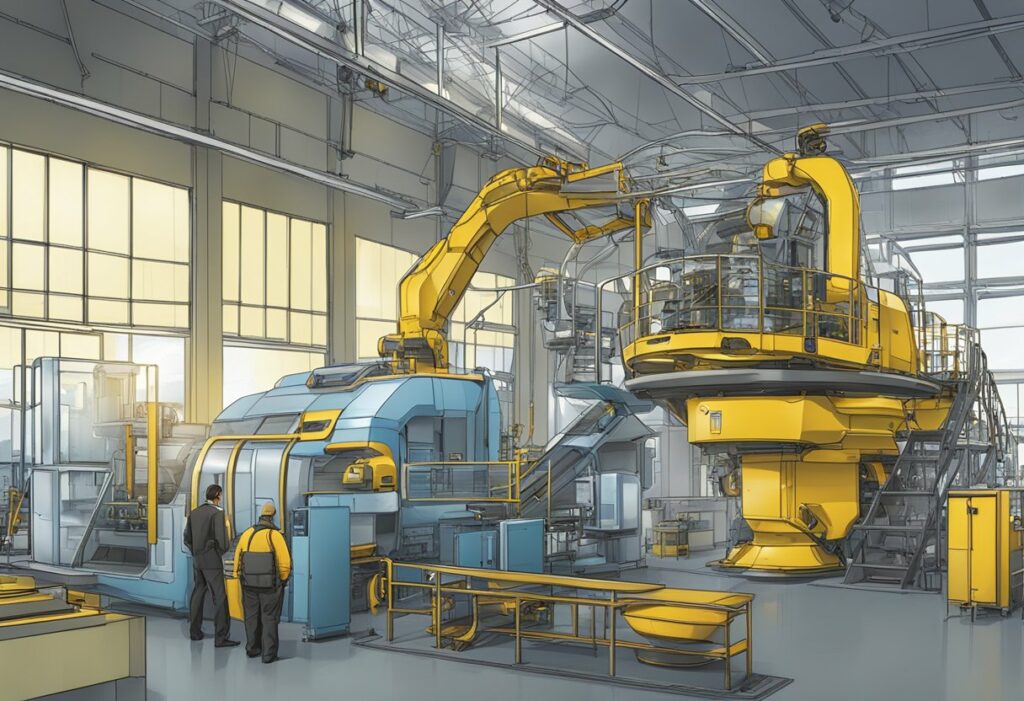
As technology continues to evolve, equipment appraisers need to stay on top of the latest trends to provide accurate and reliable valuations. The future of equipment appraisals is bright, with new innovations and technologies making the process faster, more efficient, and more accurate than ever before.
One of the most significant trends in equipment appraisals is the use of advanced data analytics and machine learning algorithms to analyze large amounts of data quickly and accurately. This technology allows appraisers to identify trends, patterns, and anomalies in the data, enabling them to provide more accurate and reliable valuations.
Another trend in equipment appraisals is the use of advanced testing and diagnostic tools to assess the condition of equipment accurately. These tools allow appraisers to identify potential issues and predict maintenance needs, which can help companies save money on repairs and reduce downtime.
Fleet management is also an area that is seeing significant growth in the equipment appraisal industry. With the rise of connected technologies, companies can now track and monitor their fleets in real-time, allowing them to optimize their operations and improve efficiency.
Finally, the future of equipment appraisals is also being shaped by changes in the make and model of equipment. As new technologies emerge, older equipment models may become obsolete, and new models may be introduced. Appraisers need to stay up-to-date with these changes to provide accurate valuations.
Overall, the future of equipment appraisals is bright, with new technologies and innovations making the process faster, more efficient, and more accurate than ever before. As the industry continues to evolve, equipment appraisers need to stay on top of the latest trends and developments to provide accurate and reliable valuations.
Frequently Asked Questions

What are equipment appraisal services?
Equipment appraisal services are professional services that provide an accurate estimate of the value of machinery and equipment. These services are usually provided by certified equipment appraisers who are experts in the field. Equipment appraisal services can be useful in a variety of situations, including when buying or selling equipment, for insurance purposes, for tax purposes, for financing, and for legal disputes.
How much does equipment appraisal cost?
The cost of equipment appraisal services can vary depending on several factors, including the type of equipment being appraised, the location of the equipment, the purpose of the appraisal, and the level of detail required. According to Hadco International, the cost of an equipment appraisal can range from a few hundred to several thousand dollars.
What is the American Society of Appraisers?
The American Society of Appraisers (ASA) is a professional organization that accredits appraisers in various fields, including machinery and equipment. According to Hadco International, ASA is a multi-discipline international organization that provides accreditation for appraisers in the United States and throughout the world. ASA accreditation ensures that appraisers have the necessary education, training, and experience to provide accurate and reliable appraisals.
What is the Institute of Equipment Valuation?
The Institute of Equipment Valuation (IEV) is a professional organization that provides education and training for equipment appraisers. According to International Machinery Appraisers, IEV offers courses and seminars on various topics related to equipment appraisal, including valuation theory, appraisal methodology, and industry-specific valuation issues. IEV certification is recognized in the equipment appraisal industry as a mark of expertise and professionalism.
What is a desktop equipment appraisal?
A desktop equipment appraisal is a type of appraisal that is conducted remotely, without physically inspecting the equipment. According to Hadco International, desktop appraisals are typically used for equipment that is readily identifiable and has a well-established market value. Desktop appraisals are less expensive than on-site appraisals, but may not be as accurate or reliable.
How are equipment appraisals calculated?
Equipment appraisals are typically calculated using one or more of the three primary valuation methods: the cost approach, the market approach, and the income approach. The cost approach estimates the value of the equipment based on the cost of replacing it with a similar piece of equipment. The market approach estimates the value of the equipment based on recent sales of similar equipment in the same market. The income approach estimates the value of the equipment based on the income it generates over its useful life. According to Hadco International, the appraiser will typically use one or more of these methods, depending on the type of equipment being appraised and the purpose of the appraisal.

